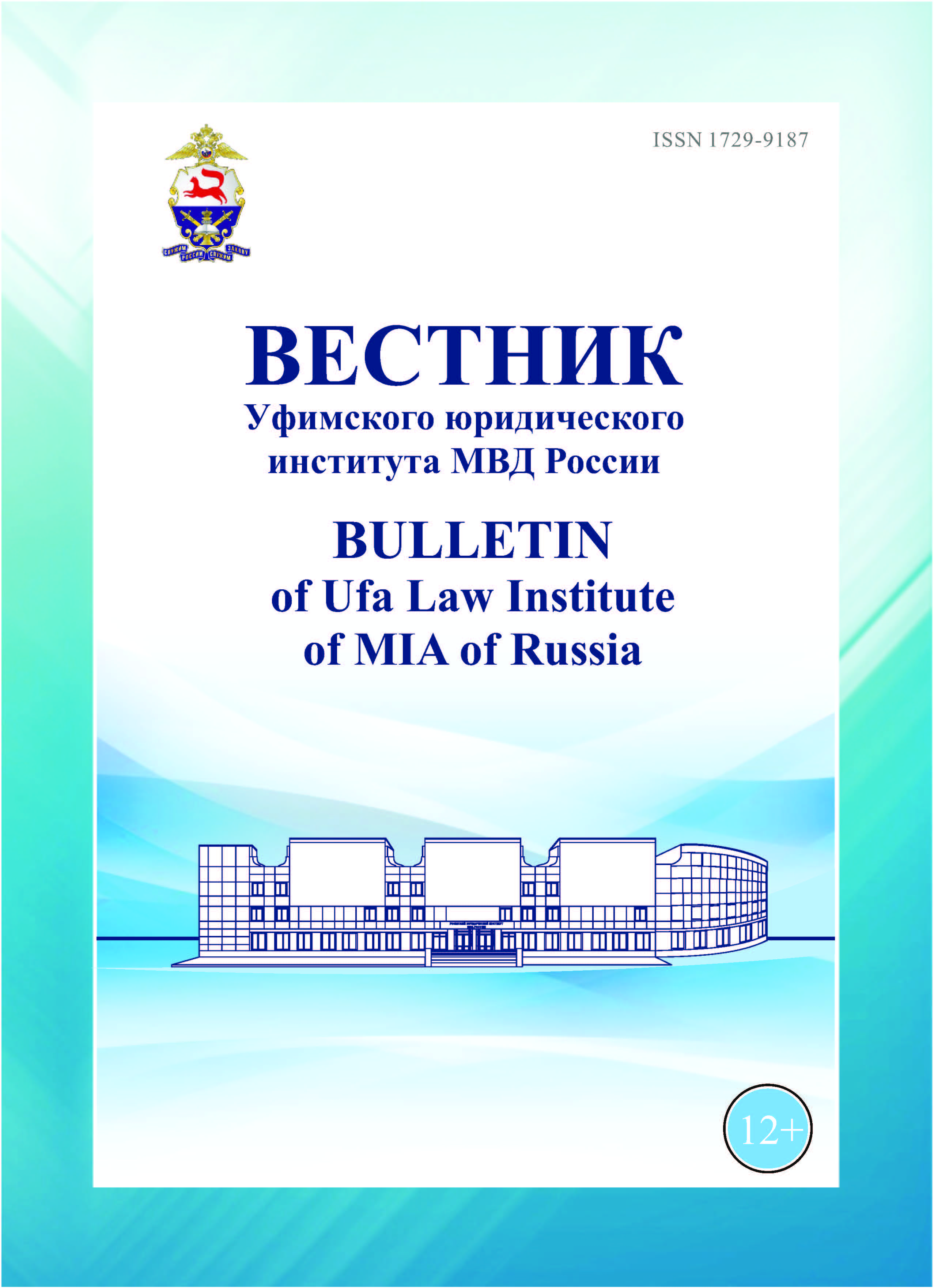UDC 811
The paper dwells on the issues of introducing and perceiving professional knowledge in the form of structures. Effective means of presenting the information in order to increase the level of foreign language proficiency of the trainees of higher educational institutions of the Ministry of Internal Affairs of the Russian Federation are suggested. Under analysis are the definitions of the term and legal term, which systematic character determines applying such tools as semantic frame and mind map for studying them. On the one hand, structuring legal lexicon is possible due to the accuracy of a legal term, on the other hand, the vague nature of the meanings of some terms and the belonging of terms to different categories enable the learner to build and observe fairly extensive and diverse connections between key aspects of various law categories.
legal term, legal discourse, bilingual learner, analysis of definitions, mnemonics, mind map, frame
1. Fedyuchenko L. G. Definition of the concept of “term” within the framework of cognitive terminology // Bulletin of Moscow State Regional University. Series: Linguistics. 2019. No. 3. P. 29–36. DOI:https://doi.org/10.18384/2310-712X-2019-3-29-36. (In Russ.)
2. Faber, Pamela, Silvia Montero Martínez, María Rosa Castro Prieto, José Senso Ruiz, Juan Antonio Prieto Velasco, Pilar León Araúz, Carlos Márquez Linares and Miguel Vega Expósito // Process‐oriented terminology management in the domain of Coastal Engineering. 2006. Terminology 12. No. 2. P. 189–213.
3. Fillmore C.J. (1982). Frame Semantics, in Linguistics in the Morning Calm, The Linguistic Society of Korea, Seoul: Hanshin. P. 111–137.
4. Minsky M. Frames for representing knowledge. M., 1979. 152 p. (In Russ.)
5. Schmidt T. The Kicktionary – A Multilingual Lexical Resource of Football Language. In H. C. Boas (Ed.), Multilingual FrameNets in Computational Lexicography. Methods and Applications. Berlin / New York: Mouton de Gruyter, 2009. P. 101–134.
6. Vasilyeva N. V., Abdurakhmanova A. Z. Frame modeling of large terminology systems (using the example of English construction terminology // Linguistics and methods of teaching foreign languages. Periodical collection of scientific articles Electronic scientific publication Issue 9. Moscow, 2017. 542 p. P. 94–114. (In Russ.)
7. Urmatova A. D., Ryspaeva G. S. Legal terminology // Bulletin of Science and Practice. 2019. Vol. 5. No. 9. P. 318–324. (In Russ.)
8. Koreneva O. B. Combining methods of corpus linguistics and experimental psycholinguistics in the study of terminology // Questions of psycholinguistics. 2019. No. 4 (42). P. 62–75. (In Russ.)
9. Khizhnyak S. P. Semantic properties of a legal term. News of higher educational institutions. Volga region. Humanitarian sciences. Philology. 2007. No. 2. P. 104–112. (In Russ.)
10. Language of the law / ed. by A. S. Pigolkin M., 1990. 192 p. (In Russ.)
11. Avakova O. V. The role of legal terminology in police activity // Police activity. 2017. No. 1. P. 16–21. DOI:https://doi.org/10.7256/2454-0692.2017.1.19290 (In Russ.)
12. Anisimova A. G., Arkhipova M. A. English-language legal terms: optimization of the learning process // Bulletin of MGIMO University. 2014. No. 4 (37). P. 294–299. (In Russ.)
13. Yashina E. V. Features of teaching law students professionally oriented (legal) English as a second language within the framework of a higher education program // Bulletin of Saratov State Law Academy. 2014. No. 5 (100). P. 233–238. (In Russ.)
14. Alferova Yu. I. Associative priming as a way to reconstruct a professionally oriented foreign language text (using the example of the English language) // Philological Sciences. Questions of theory and practice. 2021. Vol. 14. Issue 3. P. 755–766. (In Russ.)
15. Gaidukova M. A. Mnemonics as an intensive method of teaching a foreign aviation language at a university // Questions of teaching methodology at a university=Teaching Methodology in Higher Education. 2016. No. 5 (19-2). P. 251–260. (In Russ.)
16. Buzan T. The Ultimate Book of Mind Maps. Thorsons, 2005. 218 p.
17. Budd John W. Mind maps as classroom exercises // Journal of economic education. Winter 2004. P. 35–46.
18. Marunevich O., Shefieva E., Bessarabova O. Mind mapping as a tool of teaching English vocabulary at transport university. (E3S Web of Conferences 295, 05021 (2021). WFSDI, 2021. P. 1–8.
19. Kotova O. G., Kokovina E. N. Mind maps in English lessons // Problems of modern science and education. Scientific and methodological journal. Ivanovo, 2017. No. 35 (117). Pp. 27–31. (In Russ.)
20. Dozotseva M. N. Mental maps as a method of critical thinking // Education and problems of development of society. 2016. No. 1. P. 4–8. (In Russ.)
21. Pavlova N. I. Methods for the formation of lexical competence // Bulletin of Shadrinsk State Pedagogical University. 2019. No. 2 (42). P. 168–171. (In Russ.)









